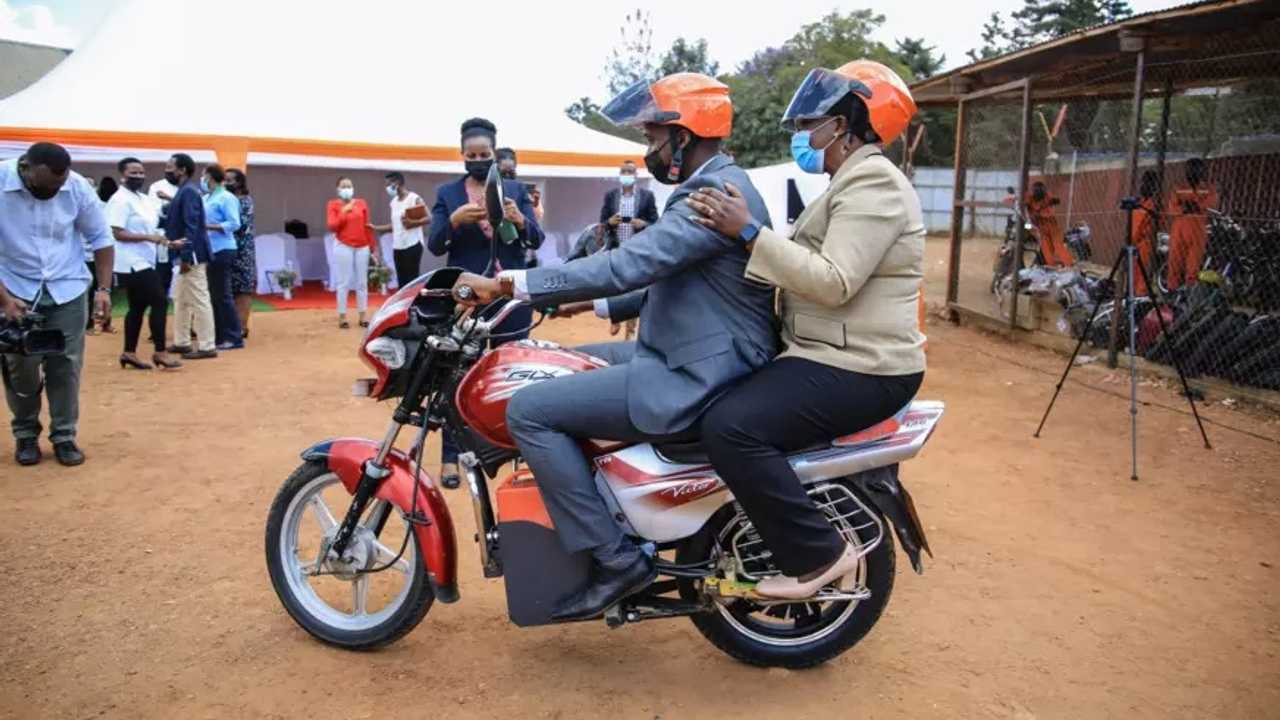Rwanda Seeks To Convert Gas-Powered Motorcycles To Electric
In Africa, steps are being taken towards the adoption of sustainable and environmentally friendly mobility solutions. For instance, the Rwandan government in partnership with a local company, Rwandan Electric Mobility, has launched a new initiative geared towards increasing the use of electric motorcycles in the country’s capital, Kigali. This is a part of the country’s bigger project with the goal of becoming carbon-neutral by the year 2050.
Rwandan citizens benefit heavily from the motorcycle taxi industry, with residents relying on this affordable and ubiquitous mode of mobility on a daily basis. With more than 100,000 motorcycles registered in the country, nearly half of these are registered as part of the motorcycle taxi industry—either ferrying people around, or being used as delivery vehicles for parcels and packages. The electric motorcycle initiative seeks to convert gasoline-powered motorcycles approaching the end of their service life to electric.

In a report published by Rwandan news outfit The New Times, the shift to electric has begun bestowing its benefits onto those who have made the early shift. Jean-Paul Habimana, a motorcycle taxi operator residing in Kigali stated in the report, “I used to spend Rwf5,000 ($5 USD) per week for engine oil, which is no longer the case. I pay Rwf900 ($0.9 USD) to charge a battery and that covers 60 kilometres compared to 40 kilometres which are covered by a litre of petrol priced at Rwf1,088 ($1.08 USD)”
This move not only reduces the overall carbon emissions, but also effectively extends the service life of these vehicles, thereby reducing expenses on the part of their owners and operators. It also drastically reduces maintenance expenses, with owners not needing to worry about replacing oil and refuelling their bikes.

To kickstart the project, the Rwanda Environment Management Authority (REMA), has signed on the technical expertise of Rwandan Electric Mobility, a company specializing in the conversion of gasoline-powered bikes to electric. Additional technical and financial support from the United Nations Development Program (UNDP) has also been secured to accelerate the project’s implementation. The pilot phase, which is expected to run for the initial six months of implementation will pave the way for a total of 30,000 motorcycles—more than a quarter of the total number of registered bikes in Rwanda—to be converted to electric within five years.
The pilot phase has been estimated to cost around RWF 150-million, or the equivalent of $150,000 USD. This includes the cost of technical training of 40 students from the Integrated Polytechnic Regional College of Kigali (IPRC Kigali), as well as the conversion of 80 motorcycles free of charge to their owners and operators.
No comments